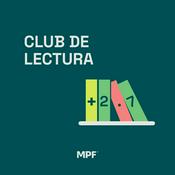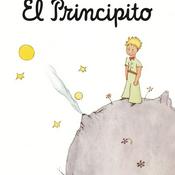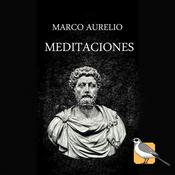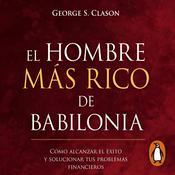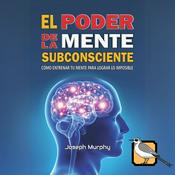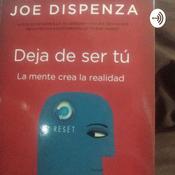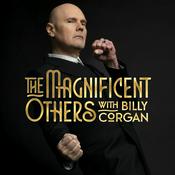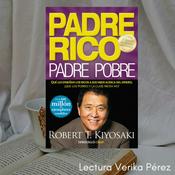1003 episodios
- In January, the Justice Department released over three million documents, including many redacted e-mails, related to Jeffrey Epstein. “Should we share the Julie Brown text with Alan [Dershowitz],” Epstein wrote in one note to a lawyer. “She is going to start trouble. Asking for victims etc.” Brown’s reporting on Epstein for the Miami Herald, and her revelations about the federal plea deal he received, had an enormous impact on public perception of Epstein and his ties to Trump. Brown joins David Remnick to discuss the latest tranche of redacted e-mails, which show, as she reported, that Trump knew about his friend’s crimes far earlier than he has admitted. Brown and Remnick also talk about Epstein’s relationship with Commerce Secretary Howard Lutnick, and why she does not believe that Epstein died by suicide.
New episodes of The New Yorker Radio Hour drop every Tuesday and Friday. Join host David Remnick as he discusses the latest in politics, news, and current events in conversation with political leaders, newsmakers, innovators, New Yorker staff writers, authors, actors, and musicians. - Jenin Younes rose to prominence on the right by defending medical professionals like Jay Bhattacharya who claimed that they were being censored over opposition to vaccination and masking mandates. Younes worked for the New Civil Liberties Alliance, a group described as libertarian, and appeared at events with the Federalist Society. As the political winds have shifted, she says that the Trump Administration’s attacks on free speech are worse than anything that she saw during the Biden Administration. Younes is currently the national legal director for the American-Arab Anti-Discrimination Committee. David Remnick speaks with her about her unlikely trajectory and about how her commitment to free speech—regardless of which side of the aisle the issue arises from—has left her in a uniquely lonely political position.
New episodes of The New Yorker Radio Hour drop every Tuesday and Friday. Join host David Remnick as he discusses the latest in politics, news, and current events in conversation with political leaders, newsmakers, innovators, New Yorker staff writers, authors, actors, and musicians. - Ben Shapiro, the host of his eponymous podcast and the co-founder of the conservative website the Daily Wire, has lambasted the left and the Democratic Party for decades. Recently, though, Shapiro has taken to criticizing some of the loudest voices in the MAGA universe, including Tucker Carlson and Megyn Kelly. The rift is over the acceptance and promulgation of conspiracy theories and, in particular, the normalization of antisemitism. Shapiro discusses the Epstein files and what they show—and do not show—about the powerful people connected to Jeffrey Epstein. The belief in conspiracies of the élite reflects “people’s desire to abdicate control over their own lives,” Shapiro tells David Remnick. They discuss Shapiro’s adherence to the conservative value of personal responsibility, and how he squares that with MAGA and its champions.
New episodes of The New Yorker Radio Hour drop every Tuesday and Friday. Join host David Remnick as he discusses the latest in politics, news, and current events in conversation with political leaders, newsmakers, innovators, New Yorker staff writers, authors, actors, and musicians. - The staff writers Emily Witt and Ruby Cramer discuss the situation in Minneapolis, a city effectively under siege by militaristic federal agents. “This is a city where there’s a police force of about six hundred officers [compared] to three thousand federal agents,” Witt points out. Cramer shares her interview with Mayor Jacob Frey, who talks about how Minneapolis was just beginning to recover from the trauma of George Floyd’s murder and its aftermath, and with the police chief Brian O’Hara, who critiques the lack of discipline he sees from immigration-enforcement officers. Witt shares her interviews with two U.S. citizens who were detained after following an ICE vehicle; one describes an interrogation in which he was encouraged to identify protest organizers and undocumented people, in exchange for favors from immigration authorities.
Ruby Cramer’s “The Mayor of an Occupied City” was published on January 23rd. Emily Witt’s “The Battle for Minneapolis” was published on January 25th.
New episodes of The New Yorker Radio Hour drop every Tuesday and Friday. Join host David Remnick as he discusses the latest in politics, news, and current events in conversation with political leaders, newsmakers, innovators, New Yorker staff writers, authors, actors, and musicians. - Last October, Bari Weiss—best-known as a contrarian opinion writer who launched the right-leaning Free Press—was appointed the new editor-in-chief of CBS News. Donald Trump has called her new regime “the greatest thing that’s happened in a long time to a free and open and good press.” The New Yorker staff writer Clare Malone wrote about Weiss’s hostile takeover of CBS for the January 26, 2026, issue of the magazine. In a conversation with David Remnick, Malone discusses her reporting on Weiss: how resigning from the New York Times launched Weiss to prominence as a crusader against what she has characterized as woke groupthink; how Weiss gained the support of Silicon Valley titans who had their own political grievances; and the headlines about Weiss’s rocky beginning as head of a news network, including the on-air travails of her new anchor, Tony Dokoupil.
New episodes of The New Yorker Radio Hour drop every Tuesday and Friday. Join host David Remnick as he discusses the latest in politics, news, and current events in conversation with political leaders, newsmakers, innovators, New Yorker staff writers, authors, actors, and musicians.
Más podcasts de Arte
Podcasts a la moda de Arte
Acerca de The New Yorker Radio Hour
Profiles, storytelling and insightful conversations, hosted by David Remnick.
Sitio web del podcastEscucha The New Yorker Radio Hour, Top Audiolibros | Insights Esenciales y muchos más podcasts de todo el mundo con la aplicación de radio.net

Descarga la app gratuita: radio.net
- Añadir radios y podcasts a favoritos
- Transmisión por Wi-Fi y Bluetooth
- Carplay & Android Auto compatible
- Muchas otras funciones de la app
Descarga la app gratuita: radio.net
- Añadir radios y podcasts a favoritos
- Transmisión por Wi-Fi y Bluetooth
- Carplay & Android Auto compatible
- Muchas otras funciones de la app


The New Yorker Radio Hour
Escanea el código,
Descarga la app,
Escucha.
Descarga la app,
Escucha.






